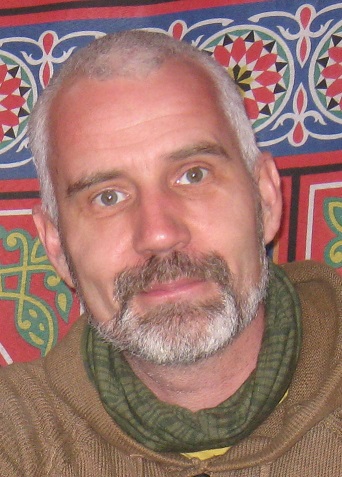Keynote Speakers
|
Hado van Hasselt (Google DeepMind) |
||
|
Title: Deep reinforcement learning Abstract: Reinforcement learning gives us a way to build machines that can learn to make decisions automatically and autonomously, without prior demonstrations of desired behavior. This means that the machine can find solutions that its designer did not need to specify or even know. This differs from more classical approaches that focus on analyzing data and leave the decisions on what to analyze and on how to use the resulting outcomes to human experts. In this talk, I will discuss how to use reinforcement learning to learn how to make decisions, and how to combine it with deep learning to scale to impressive applications. I will show examples from various domains, including video games, (simulated) robotics, and the game of Go. |
||
|
|
||
|
Manuela Veloso (Carnegie Mellon University) Title: Autonomous Intelligent Service Robots: Learning and Explanations in Human-Robot Interaction Abstract: We research on autonomous mobile robots with a seamless integration of perception, cognition, and action. In this talk, I will first introduce our CoBot service robots and their novel localization and symbiotic autonomy, which enable them to consistently move in our buildings, now for more than 1,000km. I will then introduce multiple human-robot interaction contributions, and detail the use and planning for language-based complex commands, and robot learning from instruction and correction. I will conclude with the robot explanation generation to reply to language-based requests about their autonomous experience. |
||
|
|
||
|
Marc Cavazza (University of Kent) Title: Interactive Narratives: from Plans to User Experience Abstract: Interactive Narrative has emerged as a new application of Planning techniques to the field of Multimedia, initially prompted by the need to find techniques generating action sequences under specific representational constraints. Plan-based narrative generation also emerged as a requirement to allow user interaction with the storyworld, which would demand a revision of the initial narrative, propagating the consequences of user intervention while maintaining consistency. However, use of Planning for Interactive Narrative differs significantly from the traditional applications that constitute Planning benchmarks. Firstly, knowledge engineering tends to bring specific challenges, as domains are often ill-specified, and narrative actions may be even more open-ended than real-world actions. Secondly, the concept of plan optimality cannot be transposed as such, as the shape or trajectory of the plan takes precedence when assessing its quality. Over the past ten years, my colleagues and I have been implementing multiple Interactive Narrative systems, which have made use of several Planning formalisms and techniques. In this talk, using examples from fully implemented prototypes, I will illustrate how various narrative problems translate into knowledge representation and into planning control problems. Finally, I will analyse various difficulties faced by plan-based narrative generation in terms of system development and user acceptance. |
||
|
|
||
|
Frank van Harmelen (Amsterdam Department of Informatics) Title: Very (VERY) Large-Scale Knowledge Representation Abstract: In the past 15 years, the field of knowledge representation has seen a major breakthrough, resulting in distributed knowledge-bases containing billions of formal statements statements about hundreds of millions of objects, ranging from medicine to science, from politics to entertainment and from specialist to encyclopedic. As a consequence of this enormous increase in size, researchers in knowledge representation have been forced to reconsider many of the assumptions that were (often silently) made in traditional knowledge representation research: we can no longer assume that our knowledge-bases are consistent, we can no longer assume that they use a single homogeneous vocabulary, we can no longer assume they are static (or even that they evolve only slowly), we can no longer assume we can simply do logical deductions on the entire knowledge base, etc. How to define notions of local consistency? How to interpret conclusions if the axioms change even before the reasoning engine finishes? Can we exploit the network structure of knowledge-bases to finally define a useful notion of "context"? In this talk we will discuss the challenges that are raised for modern research in knowledge representation now that KR finally has to face the real world, and can no longer rely on many of its previous comforting assumptions. |
Detailed Program
Session on Open Access
New technologies make it possible to disseminate knowledge, check conclusions and reuse data. As a researcher you can actively contribute to making research data public. On the other hand there is a long tradition of publishing scientific results via well established channels, such as publishers. The Open Access panel (made possible by NWO) focusses on these issues. Different stakeholder will discuss the current situation and the challenges for the near and far future. Panelists are Aleva, Bernard (Elsevier), Maarten Fröhlich (IOSpress), and Rinke Hoekstra (Vrije Universiteit Amsterdam). Session moderator is Hilde van Wijngaarden (University of Amsterdam / Amsterdam University of Applied Sciences).
Research to Business Session
In this session, professionals from academia and industry have the opportunity to exchange ideas in a speed dating setting, in order to explore possibilities for collaboration. Participation is by invitation only. The session will be chaired by Willem Koeman (Amsterdam Economic Board).
FACt talks
FACt talks – FACulty focusing on the FACts of Artificial Intelligence
Who are the BeNeLux faculty in Artificial Intelligence? What interesting facts do they know? Are you ready for thought-provoking talks on Artificial Intelligence? At this year’s BNAIC, three senior faculty members take up the challenge to discuss groundbreaking ideas. Catholijn Jonker (Delft University of Technology), Leon van der Torre (University of Luxembourg) and Bart de Boer (Vrije Universiteit Brussel) will share the latest insights and future directions of their preferred AI topics.

- Catholijn Jonker: (Delft University of Technology) is professor at the Interactive Intelligence Group, investigating trust, negotiation, teamwork and the dynamics of individual agents and organisations.
- Shared Leadership & control in Human-Agent-Robot Teamwork.
- http://ii.tudelft.nl/~catholijn/

- Leon van der Torre (University of Luxembourg) is professor at the Computer Science and Communication Lab, investigating individual and collective reasoning.
- If you want to let me in, you should open the pod bay doors, HAL.
- http://icr.uni.lu/leonvandertorre/

- Bart de Boer (Vrije Universiteit Brussel) is senior researcher at the Artificial Intelligence Lab, investigating speech and language.
- Modeling evolution of language: how AI answers "questions we will never answer".
- https://ai.vub.ac.be/members/bart





Social Robots Session
Special Session on Societal Implications of Social Robots
Social robots can be defined as autonomous robots that interact and communicate with humans by following social behaviors and rules. The use of social robots to support humans in a variety of domains is gradually becoming more accepted in our society. Typical applications include companion robots, medical robots, educational robots, and even sex robots. As any technological innovation, these developments bring along great opportunities as well as possible threats. In particular, the vision of autonomous machines that become so ‘social’ that we more or less treat them as human beings has given rise to much speculation about potential future scenarios, both positive and negative. For instance, what will happen if robots know more about us than we do ourselves?, establish professional, friendly, or even intimate relationships with us?, have the ability to influence and manipulate us?, and misuse the trust that we put in them? The aim of this session is to discuss a range of such hypothetical scenarios, as well as their desirability and their likelihood.
Format: three internationally renowned experts in areas related to Social Robots and Human-Robot Interaction will speak for 10-15 minutes each about this topic. Each speaker will first provide a global explanation about their own research, followed by a description of a hypothetical scenario about the future. This scenario could have the form of a ‘success story’ in which the described technology evolves into an extremely beneficial instrument for mankind, but also of a ‘doom scenario’ in which it may result into a societal threat. After that, the audience will have the opportunity to ‘vote’ which of the three scenarios they find most plausible. The results of this ballot will be used as input for a moderated discussion with the three speakers as well as the audience.
Moderator:
Panelists: